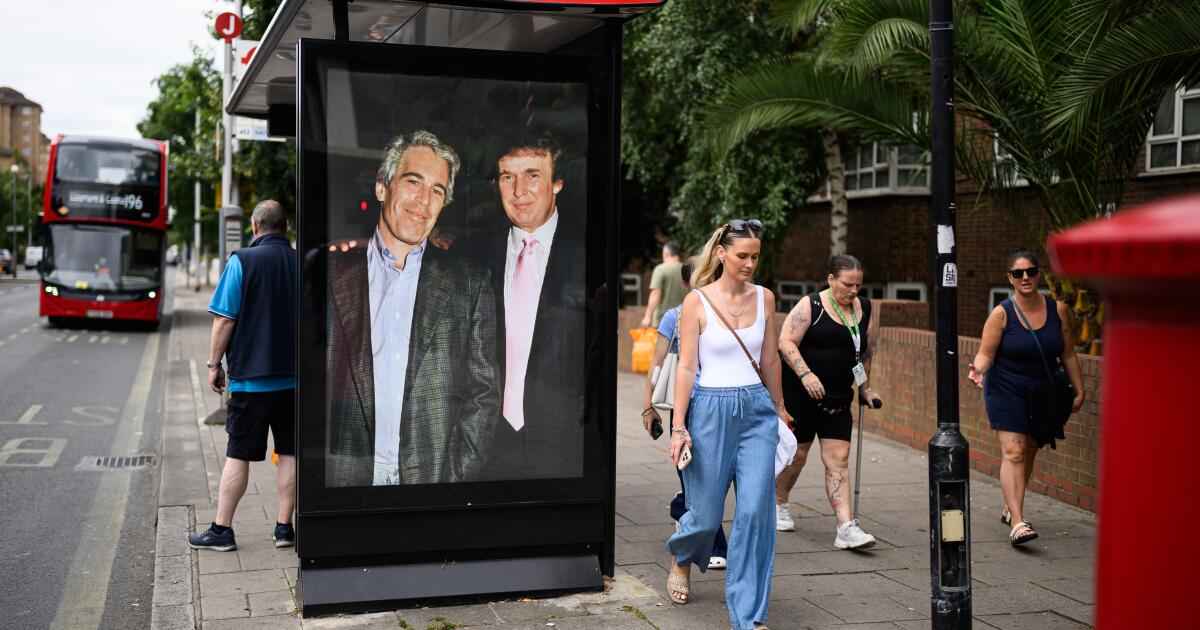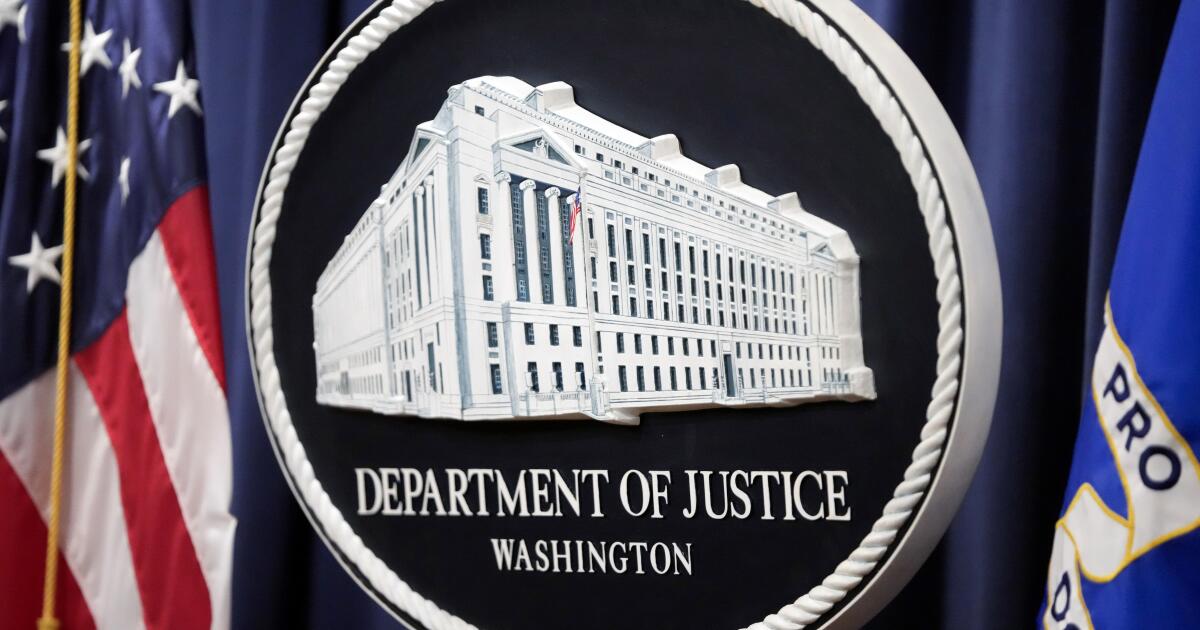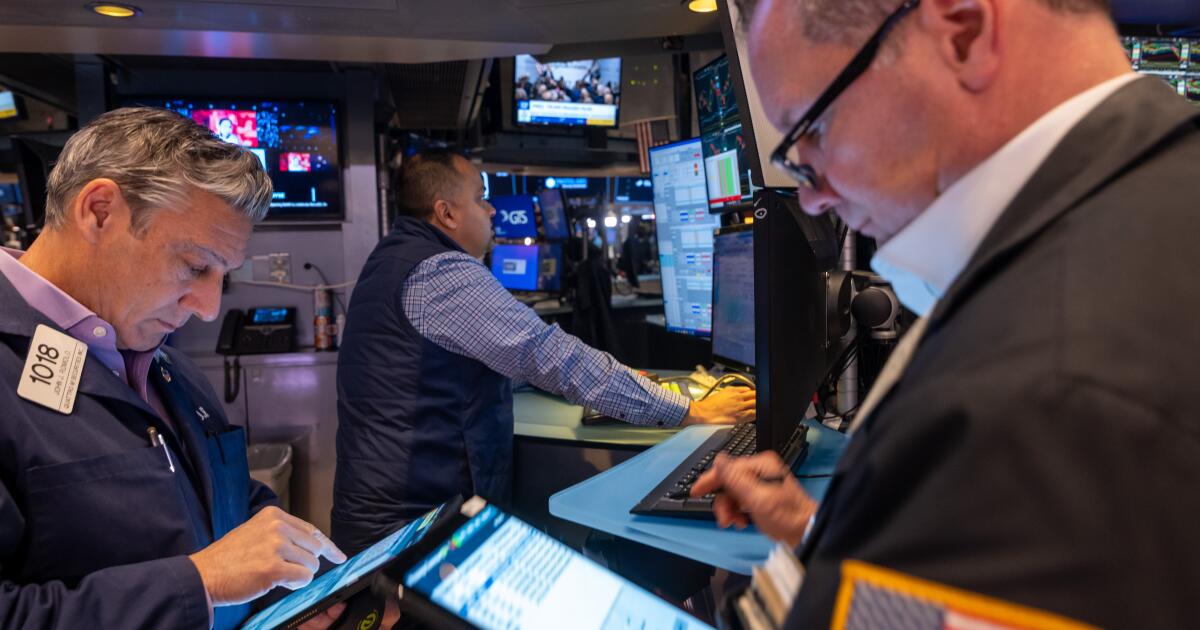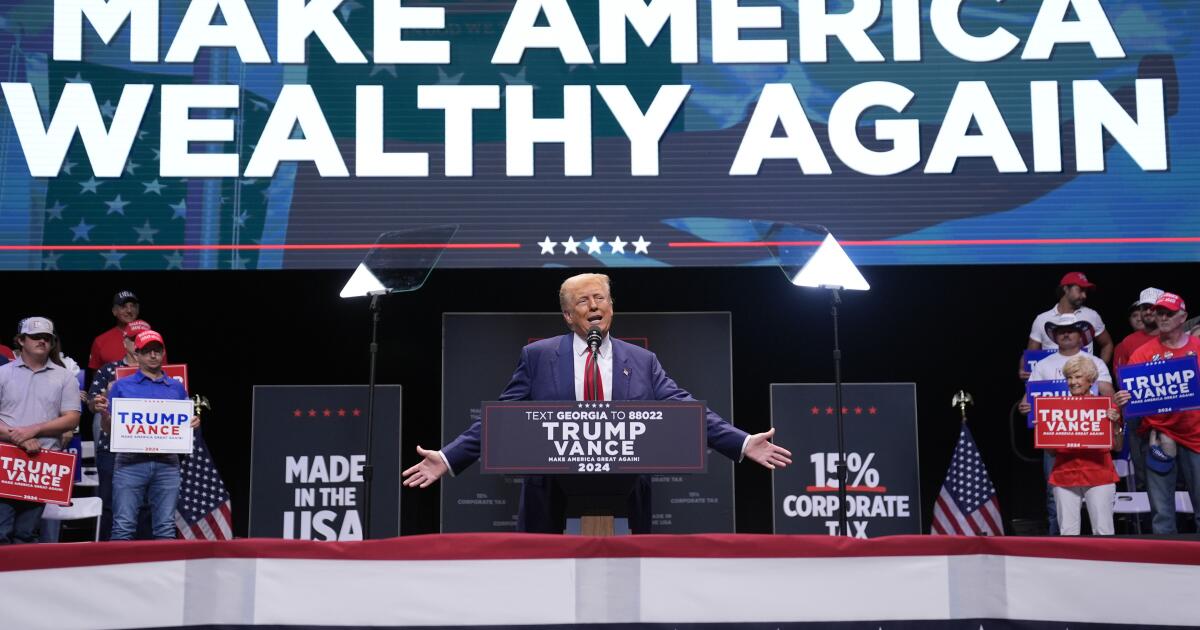
Donald Trump “spent hours at my house” and “knew about the girls,” Jeffrey Epstein, the disgraced financier accused of orchestrating sex trafficking of young women and underage girls, wrote in private emails released Wednesday by House Democrats.
The release of a small batch of Epstein’s communications sent shock waves through Washington, prompting a panicked defense of the president from White House aides who accused Democrats of colluding with the media to smear him. It also triggered Republican lawmakers to release an additional 20,000 documents from Epstein’s private estate, a move Democrats said was designed to distract from the implication of Trump.
But several of the documents shared by the Republicans added fuel to the fire, highlighting Epstein’s interest in Trump in the years after Trump claimed their friendship had come to an end, and suggesting the convicted sex offender had information on the president he was keeping secret.
By Wednesday afternoon, House Democrats — and a few Republicans — secured enough signatures for a petition that would force a chamber vote on the release of Justice Department files related to the Epstein investigation.
The drama began Wednesday morning, when Democrats released three of Epstein’s old email exchanges.
“Of course he knew about the girls,” Epstein said of Trump in an email to author and journalist Michael Wolff in early 2019, during Trump’s first term as president — one of three emails released by Democrats that Epstein sent to Wolff and to Epstein’s longtime associate Ghislaine Maxwell, who was convicted of sex trafficking after Epstein’s death.
A few hours after Democrats released three emails referencing Trump — and urged the Department of Justice to release all Epstein documents to the public — Republicans on the House Oversight Committee suddenly dumped a massive trove of documents, portions of which are redacted.
Those files suggest that even after Trump won the 2016 election — a time when Trump has said he was no longer friends with Epstein — Epstein was deeply interested in Trump’s affairs and possibly involved in some way.
In May 2017, a New York Times reporter emailed criminal defense attorney Reid Weingarten, then a finalist for Trump’s outside counsel, seeking comment. Weingarten forwarded the email to Epstein less than an hour and a half later: “do you want it? Or Jared?” he asked. It is not clear who Weingarten was referring to, but Jared Kushner was the president’s son-in-law and senior advisor at the time.
“Do I have the choice?” Epstein replied. “And if so, your view?”
Multiple people wrote to Epstein apparently under the belief that he could pass information along to Trump or people in his orbit.
In June 2017, someone whose name has been redacted sent Epstein an email with a link to a YouTube video. “How are u? Send this interview to Donald Trump pls,” the subject line read. “Its going to be everywhere.”
“ok,” Epstein responded.
The documents released by Republicans show Epstein cultivating cozy relationships with national figures across the political spectrum, often for the purpose of gathering information and exchanging political gossip and legal opinion on Trump. Among the figures he appears to exchange emails with are Larry H. Summers, former U.S. secretary of the Treasury under President Clinton, and Steve Bannon, Trump’s former advisor.
The documents released Wednesday are sure to revive questions about Epstein’s relationship with Trump and what the president knew about Epstein’s sexual misconduct with girls and young women.
Trump has denied knowing anything about Epstein’s crimes, though in July he told reporters he fell out with Epstein over his recruitment of spa workers at Mar-a-Lago. No investigation has tied Trump to Epstein’s alleged sex trafficking of young women.
“The more Donald Trump tries to cover up the Epstein files, the more we uncover,” Rep. Robert Garcia (D-Long Beach) said in a statement as he released the documents.
“These latest emails and correspondence raise glaring questions about what else the White House is hiding and the nature of the relationship between Epstein and the president,” Garcia added.
Even after the GOP shared thousands of Epstein documents, Trump dismissed the focus on the Epstein files as a Democratic attempt to divert attention from the party’s caving to Republicans on the government shutdown.
“The Democrats are trying to bring up the Jeffrey Epstein Hoax again because they’ll do anything at all to deflect on how badly they’ve done on the Shutdown, and so many other subjects,” Trump posted on TruthSocial. “Only a very bad, or stupid, Republican would fall into that trap… There should be no deflections to Epstein or anything else, and any Republicans involved should be focused only on opening up our Country, and fixing the massive damage caused by the Democrats!”
Karoline Leavitt, the White House press secretary, said that Democrats had “selectively leaked emails to the liberal media to create a fake narrative to smear President Trump.”
“These stories are nothing more than bad-faith efforts to distract from President Trump’s historic accomplishments,” she said in a statement, “and any American with common sense sees right through this hoax and clear distraction from the government opening back up again.”
It is not clear exactly when or how Trump and Epstein’s friendship came to an end.
When prosecutors brought federal charges against Epstein in 2019, Trump downplayed their relationship and said he hadn’t spoken to Epstein for 15 years. “I had a falling out with him,” Trump told reporters the day after federal authorities took Epstein into custody. “I was not a fan.”
In the emails released by Democrats, Epstein argued that Trump had more knowledge of Epstein’s affairs than he admitted.
In the 2019 email to Wolff, which references a ‘victim’ whose name has been redacted, Epstein referred to Trump’s Florida Mar-a-Lago club: “Trump said he asked me to resign, never a member ever,” he wrote. “Of course he knew about the girls as he asked ghislaine to stop.”
The White House, however, pushed back on the idea that Trump was implicated by that email to Wolff: “The ‘unnamed victim’ referenced in these emails is the late Virginia Giuffre, who repeatedly said President Trump was not involved in any wrongdoing whatsoever and ‘couldn’t have been friendlier’ to her in their limited interactions,” Leavitt said.
“The fact remains that President Trump kicked Jeffrey Epstein out of his club decades ago for being a creep to his female employees, including Giuffre,” Leavitt added.
In another email dated Dec. 15, 2015, Wolff wrote to Epstein ahead of a Republican presidential primary debate: “I hear CNN planning to ask Trump tonight about his relationship with you — either on air or in scrum afterwards.”
Epstein wrote back: “If we were able to craft an answer for him, what do you think it should be?”
In a memo released Wednesday, the White House targeted Wolff as a journalist whose record is “riddled with mistakes and inaccuracies.” It cited concerns over his credibility documented in mainstream media outlets, including The Times, the Washington Post and others.
In a third email, sent to Maxwell in 2011, Epstein wrote: “I want you to realize that that dog that hasn’t barked is trump. [Victim] spent hours at my house with him ,, he has never once been mentioned.”
Maxwell responded: “I have been thinking about that … .”
The documents released by the GOP indicate that Epstein seemed to have had a special interest in Trump, his political career and his legal troubles. Over the years, the president’s name appears again and again in Epstein’s emails as he and his friends exchange articles about Trump. Some of Epstein’s acquaintances sent him their emailed exchanges with reporters regarding Trump, and in others Epstein is discussing Trump directly with reporters.
In a June 2018 email exchange with Bannon, at the time a Trump advisor, Bannon shared an article critical of special counsel Robert S. Mueller III’s investigation into the president and his campaign’s ties to Russia, suggesting it was tainted from the start by political bias.
“Big deal,” Bannon wrote.
Epstein responded that there were “many open questions” and that it was his belief that “flippers will dictate” the course of the investigation — or that the course of the investigation would be decided by the ability of prosecutors to flip associates of Trump into informants.
In another 2018 exchange, Epstein appeared to email back and forth with Kathy Ruemmler, attorney and former White House counsel under President Obama, on former Trump attorney Michael Cohen’s cooperation with prosecutors.
After Ruemmler sent Epstein a link to a New York Times story referencing Cohen pleading guilty to violating campaign finance laws to pay adult filmmaker Stormy Daniels, Epstein wrote, “you see, i know how dirty donald is. My guess is that non lawyers ny biz people have no idea. What it means to have your fixer flip.”
Before the 2024 presidential election, Trump called for the release of more documents related to Epstein, but his administration appears to have backtracked on its promises to release documents.
Garcia called on the Department of Justice on Wednesday to release all Epstein files to the public immediately. “The Oversight Committee will continue pushing for answers and will not stop until we get justice for the victims,” he said in a statement.
By the afternoon, Adelita Grijalva, a Democratic congresswoman from Arizona who was sworn in to office earlier in the day, became the 218th House member to sign a petition that would force a vote on releasing files from the Epstein investigation. Her signature kicked off a countdown of seven legislative days for House Speaker Mike Johnson to schedule a vote on the matter.
As Democrats push the Justice Department to release the files, GOP leaders are pressuring some Republicans to remove their names from the petition. The White House confirmed that senior administration officials met with Colorado Rep. Lauren Boebert on Wednesday about the issue.
Epstein, 66, died by suicide in a New York jail in August 2019, weeks after he was arrested and charged in federal court with sex trafficking and conspiracy to commit sex trafficking of minors. A watchdog report released last year found that negligence, misconduct and other failures at the jail contributed to his death.
More than a decade earlier, Epstein evaded federal criminal charges when he struck a plea deal in a Florida case related to accusations that he molested dozens of girls.
As part of the agreement, Epstein pleaded guilty to state charges, including soliciting prostitution. He registered as a sex offender and served 13 months in jail but was allowed to leave six days a week to work at his office.



